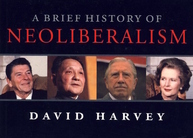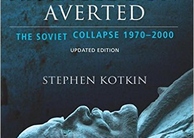From Earth Common Journal VOL. 3 NO. 1Christopher Benjamin's Eco-Innovators: Sustainability in Atlantic Canada - Stories to Change Minds and Move HeartsJournalism – The Last Word?Can we count on journalists in their role as gatekeepers and agenda-setters to place environmental issues at the forefront of societal discourse? As it stands now, Chris is quite skeptical that mainstream media will take on such a role (p. 173). Environmental stories do not currently rank high on the list of publishable pieces, with editors and owners nervous to offend potential advertisers. Given the rapidly evolving, competitive media landscape, traditional media outlets are struggling, and many cater more to their advertisers and sensation-seeking consumers. "At the moment," writes Chris, "business, celebrity, and lifestyle stories are the most widely consumed and pull in the most advertising revenue, especially if sex and violence are involved" (p. 174). This being the case, most journalists hoping to guarantee themselves a pay-cheque understandably tailor their story pitches to the desires of the largely corporate-owned mainstream media who still control the message. Chris presents Newfoundland-based Alison Dyer as a journalist who has balked this trend. As she currently writes for more than 30 newspapers and magazines across North America, her gamble seems to have paid off (p. 173). In addition, Alison "broadcasts on national radio, publishes photos online, and writes fiction and poetry which have been published in several literary journals" (p. 173). In all of these formats she takes "her environmental concerns and turns them into lively, factual emotional stories of people and their struggles for health and peace of mind" (p. 173). For instance, Alison's investigative work into arsenic-laced lumber resulted in the phasing out of this product in North America (p. 172). Working alongside other writers and lobbyists, she also helped ensure the crackdown on lawn pesticides in hundreds of municipalities across Canada (p. 172). At the same time, Alison has continued "writing celebratory pieces on nature. 'We need both,' she says, to inspire and inform" (p. 173). Both Chris and Alison find much more environmental coverage, and hope, on social media and in blogs. In this vein, Eco-Innovators highlights thegreeninterview.com, a series of one-hour interviews hosted by Silver Donald Cameron. The Green Interview features some of "the world's greatest environmental thinkers – from Vandana Shiva to Farley Mowat" (p. 176). While such coverage on social media is exciting, Chris insists that it can't yet "compare in terms of exposure to what one television broadcast can do on a major network" (Interview, 2013). When mainstream media is increasingly concentrated in the hands of few – in New Brunswick, for instance, "the Irving family owns all the daily newspapers, save one French-language paper, and most of the weekly and community papers too" (p. 173) – Alison sees little possibility of change. In order for environmental and sustainability concerns to really crack major television and newspaper, Alison insists the impetus must come from a public who "must demand it from editors and publishers. We need better environmental reporting and storytelling in order for our great-grandchildren to have a world where they can live and thrive" (p. 174). Storytelling is what Rod Dempsey, Charlottetown journalist, working with the Environmental Coalition of PEI, does best. He is currently collecting and posting online "fifty one-page stories about individuals taking action to reduce their environmental impact and carbon footprint" (p. 15). Much like Eco-Innovators itself, Dempsey's project details simple measures to enable us to make real, if small, changes: "turning lights off when we leave the room, brown bagging it for lunch to reduce fast-food trash, using a push mower, walking to work, and eating local food" (p. 15). While these behaviour changes are a great start, Rod realizes that our survival demands more and faster change. Sharing success stories, spreading the word, gives Rod a sense of optimism. He is certain we will change our ways rather than accept the less pleasant alternative; that we will eventually shake off our materialism because if we continue business as usual, nature will restore the balance, and we'll be the ones to suffer. (p. 17) This statement is an apt summary for Eco-Innovators as a whole: storytelling opens a dialogue about sustainability and strikes an emotional chord with readers. Through such narratives, Rod, and Chris himself, seem to make a conscious choice not to overwhelm readers with facts alone but to add heart to discussion. There is perhaps no better summary to this argument than that made by Chris himself in "Branding the Environment." I'm glad environmentalists are armed with so many facts to confront a complex set of crises. I wish we all were. But the movement needs to learn the secret of great communication: Before you can engage their minds, you gotta touch their hearts. (para. 14) Such is the strength of storytelling – and of Eco-Innovators: Sustainability in Atlantic Canada. ConclusionA disturbing headline in the Edmonton Sun from Tuesday, September 17, 2013, reads "Climate Change Hoax" (p. 15) in bold, capital letters, clearly emphasizing the concerns laid out in Eco-Innovators regarding the skepticism of mainstream media. In spite of this messaging, however, the biggest problem of the environmental movement is not that we need to convince people that climate change is happening. The majority is of this opinion. The challenge remains how to convince people to change their behaviours to match their attitudes, to change the dynamic from pure knowledge to action. Eco-Innovators provides 35 different perspectives on how to accomplish this task. In addition to individual actions, such as more sustainable food, transportation, or housing options, Chris also provides us with suggestions for more systemic changes: from brilliant storytelling by both journalists such as Chris, to new business models such as Olivier Soaps, to environmental programming in public schools and universities, to community-based social marketing and branding. When individuals, organizations, and businesses with greater reach can figure out the keys to behaviour change, when a critical mass is reached, the possibility for real and lasting change can emerge. Now and in this hypothetical future, the 35 stories in Eco-Innovators can serve as voices of change for how to live sustainably in our changing world and how to motivate others to do the same. ReferencesAronson, E., Wilson, T.D., Fehr, B., & Akert, R. (2013). Social Psychology (5th ed.). Toronto: Pearson. Benjamin, C. (2010, January 28). Branding the Environment. The Coast. Retrieved from http://www.thecoast.ca/halifax/branding-the-environment/Content?oid=1494903 Benjamin, C. (2011). Eco-Innovators: Sustainability in Atlantic Canada. Halifax, N.S.: Nimbus Publishing. Environmental Change Institute. (2007, June). Climate Change & Influential Spokespeople: a global Nielsen online survey. Oxford, England: Nielsen Company. Retrieved from www.eci.ox.ac.uk/publications/.../070709nielsen-celeb-report.pdf. Levant, E. (2013, September 17). Climate Change Hoax. Edmonton Sun, p. 15. PRME Principles for Responsible Management Education. (2013, September 23). PRiME time. Retrieved from http://www.unprme.org/index.php. Rubin, J. (2009). Why Your World Is About To Get A Whole Lot Smaller: Oil and the End of Globalization. New York: Random House. Vasil, A. (2007). Ecoholic: Your Guide to the Most Environmentally Friendly Information, Products and Services in Canada. Toronto: Random House of Canada. Suggested Reading from Inquiries Journal
Inquiries Journal provides undergraduate and graduate students around the world a platform for the wide dissemination of academic work over a range of core disciplines. Representing the work of students from hundreds of institutions around the globe, Inquiries Journal's large database of academic articles is completely free. Learn more | Blog | Submit Latest in Book Reviews |
















